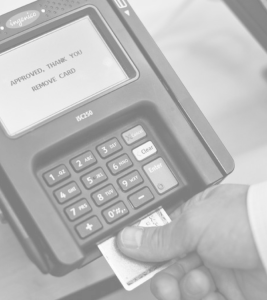Kyra Durko (Stern '19) is the CEO and co-founder of TABu, a mobile payment platform, integrated directly with leading point of sale systems, that allows venues and customers to save time and money. She started the company after experiencing inefficiencies with the payment process in the hospitality industry first hand. She just finished her sophomore year at Stern.
This post is part of the NYU Summer Launchpad 2017 blog series featuring NYU entrepreneurs’ first-hand accounts of challenges faced in starting a business and the lessons learned along the way. Learn more about the NYU Summer Launchpad 2017 participants here.
Building a company is one of the most intellectually engaging and challenging things someone can choose to do. But once you commit to the ride, perhaps the easiest thing to do is to get so caught up in the roller coaster, that you forget to look around. After a year of laser focus, uninterrupted commitment and incredible progress, my team had reached a plateau. It was at that point where we stepped back and started to look around, more deeply into our industry.
TABu, an app that integrates with leading POS systems to allow users to open, split, and pay a bar tab from their phone, is trying to capture one of the most fragmented, diverse, and competitive industries in the country–the bar and nightlife industry in NYC. Every venue wants to have their own brand and experience, and we are trying to inject an unifying platform.
Many say trying to do this means banging your head against the wall for years. Others say it’s hard, others impossible. Our team would argue it will simply take a deeper understanding of the industry, greater than anyone else who has tried to do this before.
Our team has been struggling to bridge the gap between our long term value proposition to our clients–save time processing payments to make more sales per hour– and our short term value proposition. What immediate need can TABu solve for these venues? What payment problems are they facing today? It certainly wasn’t an easy question to understand, or more importantly uncover the commonalities between the 1500+ venues in Manhattan. Many venues didn’t care about saving time at all, or had been promised they would save time with other products and been let down.
Feeling desperate for insight, I biked to the Lower East Side on a hot summer afternoon and met with the general manager of a busy venue. I had never heard of the venue, and didn’t expect much that was different from the hundreds of managers and owners I spoke with in the past year. The manager is an NYU alumni and we hit it off right away. It wasn’t until about 30 minutes and a few interruptions from staff later, that he started talking about chip card payments.
 He was explaining how their POS company (the #1 in NYC, if not the country) has not yet shipped their EMV compliant hardware, and staff have to run to separate chip readers on busy nights. (EMV stands for Europay, MasterCard, and Visa, is a technical standard for smart payment cards and for payment terminals that can accept them). Many of us can relate to the awkward time spent standing at the register with impatient people waiting behind you in line as you wait for your chip card to be ready to pull out of the terminal. But what many of us don’t see is what happens when chip cards are processed behind the bar. Well, the answer varies. Some restaurants are inserting chips, but it turns out the majority are not yet EMV compliant.
He was explaining how their POS company (the #1 in NYC, if not the country) has not yet shipped their EMV compliant hardware, and staff have to run to separate chip readers on busy nights. (EMV stands for Europay, MasterCard, and Visa, is a technical standard for smart payment cards and for payment terminals that can accept them). Many of us can relate to the awkward time spent standing at the register with impatient people waiting behind you in line as you wait for your chip card to be ready to pull out of the terminal. But what many of us don’t see is what happens when chip cards are processed behind the bar. Well, the answer varies. Some restaurants are inserting chips, but it turns out the majority are not yet EMV compliant.
Why aren’t they compliant? Well it takes 10x as long to process a payment by inserting the card instead of swiping and for a busy bar that can be deadly for customer service. It is also expensive to upgrade hardware and complicates tipping and opening tabs.
So, what is the incentive to be chip compliant? Chargebacks are a massive problem in the hospitality industry, especially for bars and nightclubs. People file chargebacks saying they didn’t actually get a drink, or worse, weren’t there at all, all the time. Large nightclubs lose tens of thousands annually. Since October 2015, venues are 100% liable for any fraud or chargeback from a transaction that wasn’t completed by inserting the chip.
Why is all the standards around chip card payments important to TABu? Our mobile payment system does not have cards to insert. TABu is the key to avoid all of the above issues faced by venues on a daily basis.
It probably seems like I are getting caught on the roller coaster again, looking straight ahead. We were searching for the next climb up, and now we are there. That is entrepreneurship. We have learned a lot from working in the industry, but for us, it took one 45 minute conversation to uncover a major subset of problems that presents a great opportunity for TABu. It also answers an important question - why now?
The nightlife industry is outdated and ripe for change. But more importantly, it is dominated by millennials who expect mobile payment and modern technology every where they go. Now it is time to buckle up, keep our eyes straight ahead, but not forget to look around.







